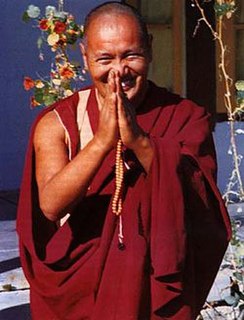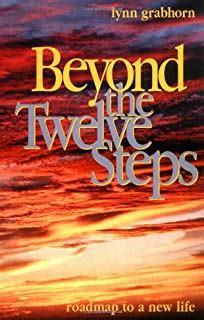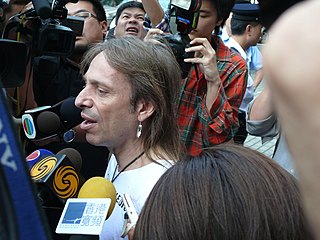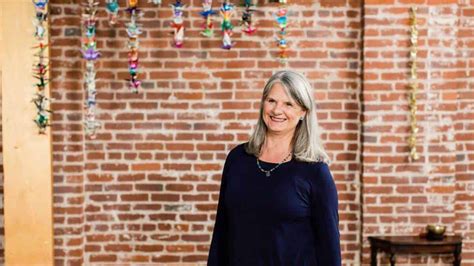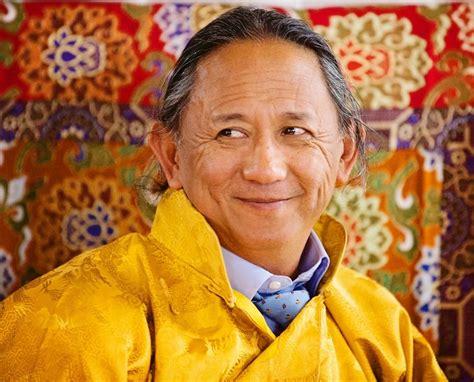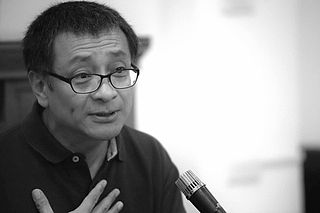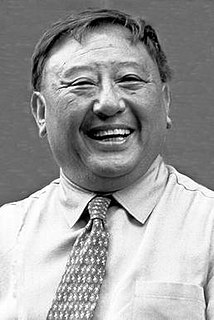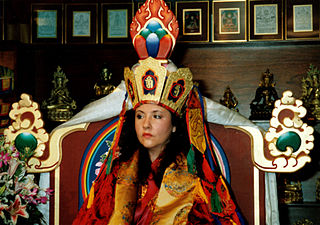A Quote by Thubten Yeshe
It is a simple truth that if we identify ourselves as being fundamentally pure, strong, and capable we will actually develop these qualities, but if we continue to think of ourselves as dull and foolish, that is what we will become.
Related Quotes
Self-respect is often mistaken for arrogance when in reality it is the opposite. When we can recognize all our good qualities as well as our faults with neutrality, we can start to appreciate ourselves as we would a dear friend and experience the comfortable inner glow of respect. To embrace the journey towards our full potential we need to become our own loving teacher and coach. Spurring ourselves on to become better human beings we develop true regard for ourselves and our life will become sacred.
Every human soul has seen, perhaps before their birth, pure forms such as justice, temperance, beauty and all the great moral qualities which we hold in honour. We are moved towards what is good by the faint memory of these forms, simple and calm and blessed, which we saw once in a pure, clear light, being pure ourselves.
We human beings cause monstrous conditions, but precisely because we cause them we soon learn to adapt ourselves to them. Only if we become such that we can no longer adapt ourselves, only if, deep inside, we rebel against every kind of evil, will we be able to put a stop to it. ... while everything within us does not yet scream out in protest, so long will we find ways of adapting ourselves, and the horrors will continue.
One of the reasons I think people are increasingly nervous about U.S. debt is because they think that we are not actually digging ourselves out of the hole, but instead are digging ourselves into a deeper and deeper hole and will not be able to pay it back because we're not actually creating the new technologies that will enable us to pay back and the money somehow is not really being invested in the future or in progress.
It is difficult to see ourselves as we are. Sometimes we are fortunate enough to have good friends, lovers or others who will do us the good service of telling us the truth about ourselves. When we don't, we can so easily delude ourselves, lose a sense of truth about ourselves, and our conscience loses power and purpose. Mostly, we tell ourselves what we would like to hear. We lose our way.
We think that by protecting ourselves from suffering, we are being kind to ourselves. The truth is we only become more fearful, more hardened and more alienated. We experience ourselves as being separate from the whole. This separateness becomes like a prison for us - a prison that restricts us to our personal hopes and fears, and to caring only for the people nearest to us. Curiously enough, if we primarily try to shield ourselves from discomfort, we suffer. Yet, when we don't close off, when we let our hearts break, we discover our kinship with all beings.
In the loss of skill, we lose stewardship; in losing stewardship we lose fellowship; we become outcasts from the great neighborhood of Creation. It is possible - as our experience in this good land shows - to exile ourselves from Creation, and to ally ourselves with the principle of destruction - which is, ultimately, the principle of nonentity. It is to be willing in general for being to not-be. And once we have allied ourselves with that principle, we are foolish to think that we can control the results. (pg. 303, The Gift of Good Land)
Never again will you be capable of ordinary human feeling. Everything will be dead inside you. Never again will you be capable of love, or friendship, or joy of living, or laughter, or curiosity, or courage, or integrity. You will be hollow. We shall squeeze you empty and then we shall fill you with ourselves.
Sometimes we ask ourselves 'Why?' Why do I continue to smile, to give, to live? Why do I continue to stand, despite the ferocity of the wind that keeps blowing, that keeps slapping against my face, creating a pressure that says 'fall'? Why I don't I listen to those who call me a fool because I continue to love despite my hurt? I don't know what tomorrow brings; I don't know if my troubles will seize or if my sorrows will continue. But this much I do know - I will continue to hold out, I will continue to press on, until my blessing comes.
